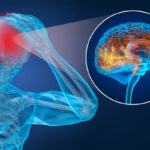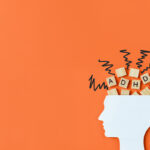If you experience recurring sudden fear or anxiety for no apparent reason, you could be suffering from panic disorder.
For many, panic attacks include physical symptoms such as a racing heart or sweating. If this sounds familiar and you live in fear, wondering when it might happen again, you will be relieved to know there are treatments available to help prevent your attacks.
Here we look at what panic disorder actually is and what steps you can take to treat it.
What is Panic Disorder?
Panic disorder causes unexpected, repeated panic attacks with ongoing worry a panic attack will occur.
Although you can suffer from intermittent panic attacks in stressful situations, panic disorder develops when fear is intensified by worrying about future attacks. This often leads to changes in your behavior, such as being too afraid to leave your home.
What are Panic Attacks?
Panic attacks cause strong but brief feelings of fear, accompanied by physical symptoms when there is no logical threat.
Many people suffer from such severe physical symptoms it can feel like you a heart attack. As many as 11% of Americans suffer from panic attacks, but only 2 to 3% suffer from panic disorder. Although anyone can have panic attacks, it is more common in teens and early adults, as well as females.
Common Causes and Symptoms of Panic Attacks
Although there is no known cause for panic attacks, it is believed they are tied to your brain and nervous system. These areas help determine how we react to anxiety and fear. Although causes are not specific, there are some risks that increase your likelihood of suffering from panic attacks, including:
- Family history
- Mental health issues such as anxiety disorders or depression
- Substance abuse problems
Symptoms of panic attacks come on without warning and can include:
- Chest pain
- Chills
- Breathing issues, including a feeling of being smothered or choked
- Fear of losing control or that you are going to die
- Terror
- Nausea
- Racing heart
- Sweating
- Numbness and/or tingling in fingers or toes
- Trembling and shaking
Typically, once the panic attack begins, the feeling intensifies in about 10 minutes and then quickly begins to subside.
How is Panic Disorder Diagnosed?
Because there are physical symptoms that can be caused by health issues such as respiratory problems, thyroid issues and heart disease, you should report your attacks to your doctor as soon as possible.
They will run tests to rule out a health problem before diagnosing a mental health condition such as panic disorder. Once a physical illness is ruled out, your doctor will consider other factors. This includes panic disorder if you have repeated attacks along with obsessive or ongoing worry about:
- When your next panic attack will occur
- The consequences of having another attack
- Losing control during a panic attack
- Changing your lifestyle to avoid triggering a panic attack
Once panic disorder is diagnosed, your doctor will help you find treatment.
What are Some Panic Disorder Treatment Options?
Common treatment options for panic disorders and anxiety include:
- Neurofeedback: This treatment is based in neuroscience, targeting specific areas of the brain associated with anxiety. It can also help manage your physical symptoms.
- Psychotherapy: This treatment helps maintain changes in the brain achieved through neurofeedback. It teaches you skills to reduce stress and manage anxiety using cognitive strategies. Your therapy helps change thinking patterns and promote behavioral changes that help you get well.
Treatments can be combined and, in some cases, include medications. Your therapy specialists will discuss your options and provide a treatment plan to help you achieve wellness.
The Chicago Mind Solutions Difference
Chicago Mind Solutions works with individuals, offering neuropsychological testing and non-invasive treatment for many mental health conditions. For more information about our treatments and teletherapy options, please contact us at (224) 723-5050 or email info@chicagomindsolutions.com.






